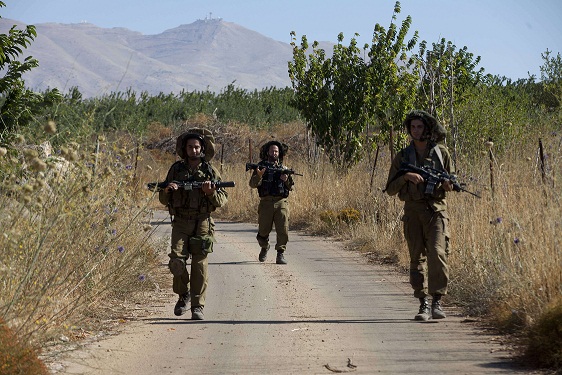
With clashes intensifying in the Syrian capital of Damascus, fighting between the Free Syrian Army (FSA) and forces loyal to President Assad has escalated in Aleppo. Syria’s largest city had, until now, seen relatively few confrontations since the onset of the uprising.
On the outskirts of Aleppo between 9 and 15 inmates were killed when President Bashar Al-Assad’s forces quelled a prison mutiny using automatic weapons and teargas.
Opposition forces claim that the Syrian Army has bombarded the northeast districts of Sakhour and Hanano. Activists estimate the death toll to be at 33 going into Tuesday evening.
On Monday, the spokesman for Syria’s Foreign Ministry, Jihad Makdissi stated that no chemical or biological weapons would ever be used against Syrians during the current crisis. However, he did add that using these weapons stands as an option if Syria were subject to foreign aggression.
Makdissi affirmed that chemical weapons “if they exist” are carefully monitored and stored by the Syrian Army. The spokesman’s comments are the first time Syria publicly acknowledges possessing a supply of chemical weapons.
Syrian authorities tried to backtrack following Makdissi’s statements, claiming his comments were taken out of context, but the threats put forth by Makdissi were widely condemned by prominent figures in the international community.
UN secretary-general Ban Ki-moon told reporters in Serbia; “It would be incomprehensible if anyone in Syria would use weapons of mass destruction.”
In a statement, the FSA claimed that they know where the weapons are located and that the Assad government has transferred some of chemical weapons to airports near the border.
On Tuesday, Chief of Israel Defense Forces (IDF), Benny Gantz noted that if Hezbollah were to obtain Syrian chemical weapons, it could lead to an unintentionally “broad campaign”.
Also on Tuesday, a report by the Fars news agency contains remarks from Iranian General Masoud Jazayeri saying that the Assad administration has friends in the region that are poised to “strike out,” directing the statement toward “hated Arabs.”
Although no countries were specifically named, Saudi Arabia and Qatar have expressed support for the Syrian rebels while Iran is a staunch ally of Bashar al-Assad and his rule.
Vetoes from Russia and China in the UN Security Council have prevented it from passing resolutions pressuring Syria to end the conflict, but the Arab League has officially urged Assad to step down, offering him and his family safe passage. The Arab League has also pledged USD 100 million to aid Syrian refugees, the number of which has dramatically increased over months of strife.
Syria has already rejected the Arab’s League offer of safe passage, dismissing it as “flagrant interventionism.”
Secretary General of the Arab League, Nabil Al-Araby, will travel to China and Russia with Prime Minister of Qatar Sheikh, Hamad bin Jassim, to communicate the Arab League’s interests to the two Security Council member countries.
On Tuesday the Iranian news agency Fars claimed that Syrian authorities had arrested a suspect in connection with the Damascus bombing that killed four senior security officials including Assad’s brother-in-law, Defense Minister Assef Shawkat. According to Syrian MP Mohammad Zahir Ghanoum the detained suspect worked at the national security headquarters.
Areas surrounding Damascus and Aleppo have become increasingly volatile. On Tuesday IDF Chief Gantz told the Knesset Panel that during the uprising, an estimated 17,000 Syrian troops had defected.

